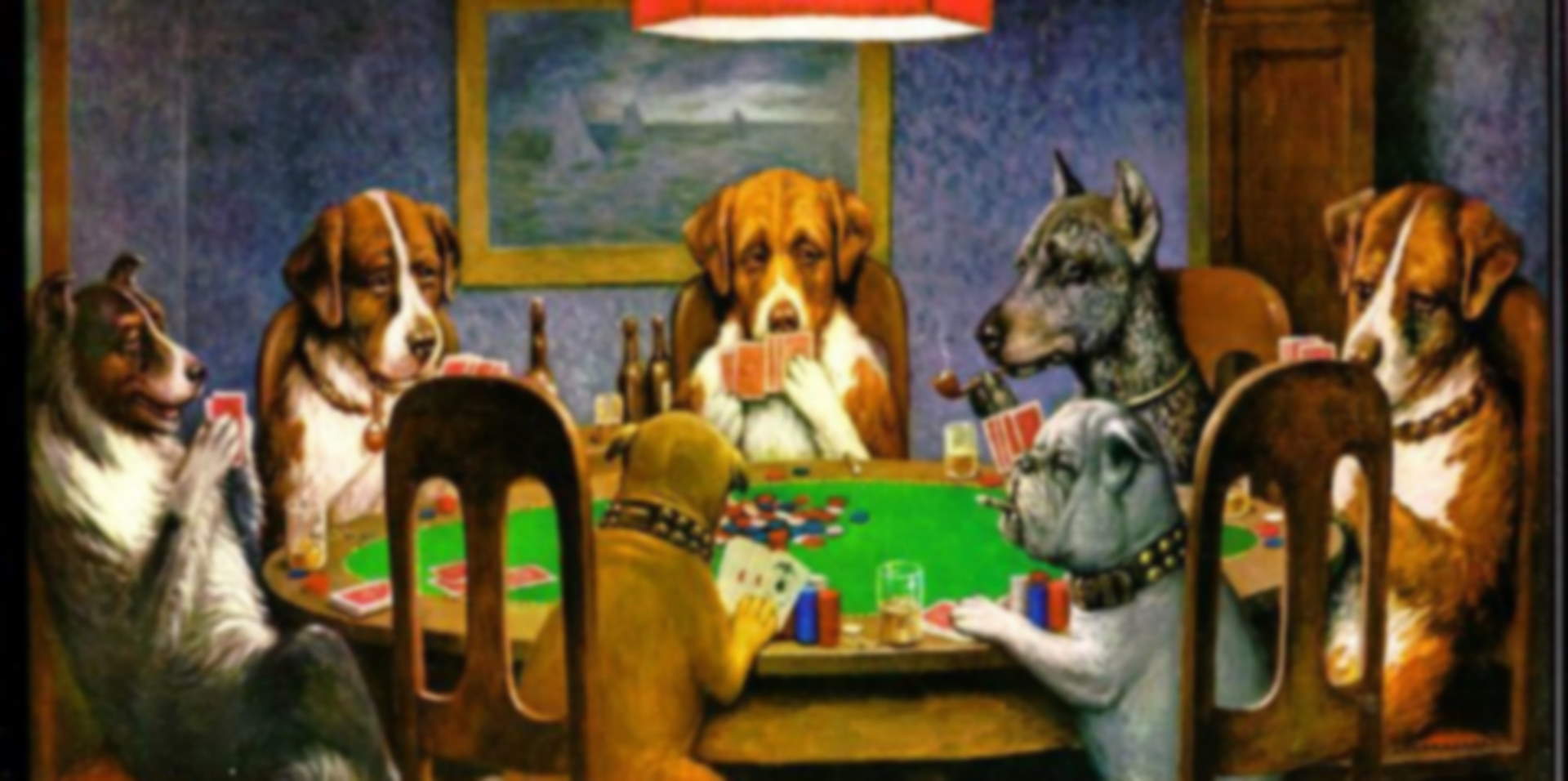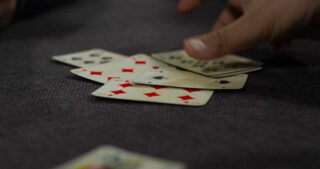/ 
Once upon a time there was a poker game called “Limit Hold’em.” It was the most popular game in the land. Everywhere you went, in each cardroom and every casino, limit was the game that was played. Then, the earth shook and the poker world changed—perhaps forever.
When ESPN began showing the 2003 World Series of Poker in prime time, millions of television viewers were exposed to an exciting “new” poker game for the very first time. No-limit hold’em, a game previously tucked away inside smoky backrooms played regularly only by a few dusty old-timers, skyrocketed in popularity and revolutionized poker and the way it is perceived everywhere.
Limit hold’em has since become poker’s step-child. Sure, remains widely-played and is a staple game inside many cardrooms. But, in tournament poker, no-limit is king.Limit poker requires a very different set of skills and strategies to win. Unlike the reckless “all in” mentality often present at no-limit tables, limit is a game of patience and percentages. For that reason it is not nearly as dramatic to watch, due to its more methodological qualities.
Nevertheless, the first limit hold’em event at this year’s World Series attracted one of the largest “limit” fields in poker history. A whopping 1,068 players put up $1,500 each for the chance to win a gold bracelet. One-thousand, and sixty-eight entries. Ho-hum. Just another day at the 2006 World Series of Poker.
The winner was a 29-year-old Iranian-born student from Los Angeles named Kianoush Abolfathi. He won $335,289 and his first WSOP gold bracelet. Abolfathi’s comeback victory from one of the lowest stacks was as impressive as it was remarkable. He started at the final table eighth in the chip count. It took Abolfathi just under seven hours to obliterate eight would-be champions en route to his first major tournament victory.
After two long days of play, the limit final table was set with the nine survivors. When the first hand was dealt out, seating positions and chips counts were as follows:
| Name | Chip Count | Seat # |
| Vipul Kothavi | $132,000 | 1 |
| Matt Elsby | $51,000 | 2 |
| Josh Schlein | $243,000 | 3 |
| Michele Lewis | $225,000 | 4 |
| Eric Buchman | $213,000 | 5 |
| Kianoush Abolfathi | $75,000 | 6 |
| Lars Hansen | $156,000 | 7 |
| Hank Sparks | $243,000 | 8 |
| Patrick Maloney | $259,000 | 9 |
The first player eliminated was the shortest stack. In fact, the hand would set the stage for what would ultimately become “the Kianoush Abolfathi show.” Matthew Elsby was dealt pocket aces and got into a raising war with Abolfathi after making trip kings (holding K-Q) when a third-king fell on the river. The big pot put Abolfathi up to third in the chip count, zooming from pretender to contender. Elsby earned $32,801 as the first player out.Lars Hansen is one of many talented Scandinavian players who have fared well at the WSOP in recent years. However, he went out next when he lost a series of pots and had to commit his final chips with a dog hand. The dog failed to bark, and Hansen marched away in eighth place. He received $36,446.Patrick Maloney suffered much the same fate – a few bad hands and then low on chips—a forced final commitment with a weak hand. Maloney’s 7-6 failed to slay Michele Lewis’ Q-10 and the night was over for the Las Vegas-based poker pro. Seventh place paid $43,735.
Hank Sparks arrived as the co-chip leader at the start, but got a shock on his final hand of the night when his pocket nines lost to Michele Lewis’ pocket tens. Sparks, appropriately enough an electrical engineer by trade, got zapped and had to settle for $51,024 for sixth place.
Vipul Kothari, from Edison, NJ was eliminated next. Kothari left in a disappointing way, losing with A-K suited after the flop brought two cards to his suit. But the flush card of salvation failed to come. All of Kothari’s chips went over to Kianoush Abolfathi. Kothari went to the cage and collected $58,313 for fifth place.
The first female to make a final table appearance at this year’s WSOP was Michele Lewis, a real estate broker and full-time mother of two children. Lewis arrived within striking distance of the chip lead a few times, but suffered a tough beat on her final hand of the tournament. Lewis was dealt pocket aces against Josh Schlein’s Q-10 suited. After the flop came with two of Schlein’s suits, a raising war broke out. A spade on the river completed Schlein’s flush and paved the exit path for Lewis. Part of her $72,891 in winnings, she says, will go to a charity that works to promote and fund cancer research.
Down to three players, just as it looked as though Josh Schlein might start to pull away from his two rivals, he took a number of disappointing beats with the second-best hand and ended up the victim of a complete chip reversal. Schlein finally busted-out with top pair (kings) which lost to Abolfathi’s set of deuces. Third-place paid $101,318.
That big hand gave Abolfathi a 4 to 1 chip lead when heads-up play began. His lone opponent, Eric Buchman would prove to be a tough final blockade. Despite being out-chipped by a large margin throughout the final duel, Buchman won several key hands and did his best to pull off a comeback. He got close a few times, but in the end – the big stack and the more aggressive player who knew how to take advantage of the situation won. After 90 minutes of scratching and clawing, Abolfathi finally delivered the knockout blow with a pair of tens to Buchman’s no-pair, and a new poker champion was crowned at the Rio.
As the runner-up, Eric Buchman received $174,938 in prize money. The winner showed great appreciation for the moment and proudly snapped on the coveted gold bracelet. Abolfathi was the $1,500 Limit Event champion.
Dieser Artikel erschien auf PokerOlymp am 19.04.2007.


